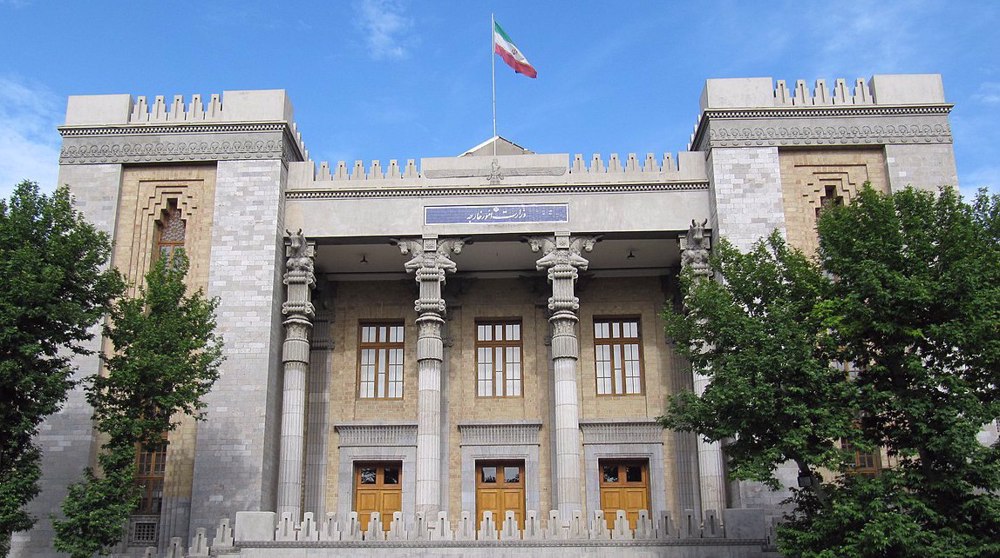
Israel’s assassination of a senior military advisor of the Islamic Revolution Guards Corps (IRGC) in Syria will in no way help the “wicked and fake” regime continue to survive, Iran’s Foreign Ministry spokesman says.
Addressing reporters at his weekly press conference on Monday, Nasser Kan’ani condemned Tel Aviv's assassination of Brigadier General Seyyed Razi Mousavi, who was serving as a military advisor in Syria, emphasizing that such acts will not benefit the Israeli regime in any way.
Mousavi was martyred in an Israeli airstrike in a Damascus neighborhood on December 27. He was a comrade of top Iranian anti-terror commander General Qassem Soleimani, who was also assassinated in a US drone strike in Iraq in January 2020.
The Iranian spokesman pointed out that Mousavi was on an advisory mission in Syria at the invitation of the Arab country, holding the Israeli regime’s officials accountable for the consequences of his assassination.
Iran reserves the legal right to respond to Israel’s move “at any time and place,” he asserted.
“According to the UN Charter, Iran has the right to respond to this criminal act” and has asked the Security Council to fulfill its responsibility vis-à-vis the maintenance of international peace and prevention of putting regional peace in jeopardy, he added.
Kan’ani further noted that any attack on Iranian advisors who are in Syria legally is a clear evil act and a blatant violation of the Arab country’s territorial integrity.
Such acts would only help terrorists and pose a challenge to regional peace, he warned.
General Soleimani’s assassination ‘international crime’
Elsewhere in his presser, the spokesman reaffirmed Iran’s resolve to pursue the US assassination of General Soleimani both inside the country and at international courts, stressing that “remarkable” measures have been carried out so far.
In any fair criminal court, General Soleimani’s assassination is definitely regarded as an international crime and its perpetrator must be brought to justice, he added.
General Soleimani, commander of the Quds Force of Iran’s Islamic Revolution Guards Corps (IRGC), Abu Mahdi al-Muhandis, the second-in-command of Iraq’s Popular Mobilization Units (PMU), and their companions were assassinated in a US drone strike authorized by then-president Donald Trump near Baghdad International Airport on January 3, 2020.
Both commanders were highly revered across the Middle East because of their key role in fighting the Daesh Takfiri terrorist group in the region, particularly in Iraq and Syria.
Positive atmosphere in Iran-Egypt ties
On the Tehran-Cairo rapprochement, Kan’ani said there is a positive atmosphere in the bilateral relations, which are advancing in accordance with a roadmap drawn up by the two countries’ foreign ministers.
“We are interested in the step-by-step development of relations between two important Muslim countries within the framework of the defined roadmap,” he added.
Egypt severed its diplomatic relations with Iran in 1980 after it welcomed the deposed Pahlavi ruler of Iran and also recognized the apartheid Israeli regime.
'Tehran informed Moscow outright its stance on Persian Gulf islands'
Asked to comment on Tehran-Moscow ties, the Foreign Ministry spokesman said Iran explicitly informed Russia about its stance on the three Persian Gulf islands of Abu Musa, the Greater Tunb and the Lesser Tunb following the final statement of the 6th Arab-Russian Cooperation Forum in Morocco.
Kan’ani pointed to “constructive and advancing” relations between Iran and Russia in various fields in line with Tehran’s good neighborliness policy and said both sides have political will to expand ties.
However, he said, bilateral relations do not necessarily mean consensus on all international issues, explaining that countries have views on various topics based on their national interests.
He stressed the importance of observing mutual respect in relations among countries and said, “The good relations between Iran and Russia do not bar us from expressing our views on other issues.”
The three Persian Gulf islands of Abu Musa, the Greater and Lesser Tunbs have historically been part of Iran, proof of which can be found and corroborated by countless historical, legal, and geographical documents in Iran and other parts of the world. But the United Arab Emirates (UAE) has repeatedly laid claim to the islands.
The islands fell under British control in 1921 but on November 30, 1971, a day after British forces left the region and just two days before the UAE was to become an official federation, Iran’s sovereignty over the islands was restored.
US neither knows globe nor Iran’s weight
In a reaction to American officials’ call for Iran to be wiped off the map, Kan’ani said they either do not know the globe or do not know Iran’s weight.
The Iranian diplomat emphasized that such statements clearly show crazy thoughts among American officials
Deep devotion of some American representatives to the Israeli regime is the cause of such insane statements, Kan’ani said.





Leave a Reply